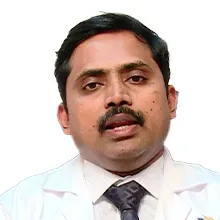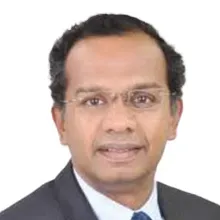Overview of Liver Transplant Treatment India
When a liver becomes damaged to the extent to which it cannot be reversed to its healthy form or when the whole liver becomes deceased, a procedure of liver transplant is performed in which a healthy part of a liver is transplanted to the patient. A person with a healthy liver and familial tendency usually donates the liver to the person undergoing a liver transplant. A liver transplant is a very beneficial treatment for diseases of the liver that are present in their last stages and cannot be treated with medications and other surgeries. Liver transplant is a very complex surgical procedure and its complexity may vary according to each patient. The general health of the patient is very necessary to perform the surgery otherwise it can lead to liver transplant failure. The pre-operative care is usually taken into consideration to prepare the patient for liver transplant surgery. After the surgery, post-operative care is also necessary for the prevention of infection, transplant failure, and other complications. A liver transplant procedure can be a risk to several individuals so it is necessary to monitor the patient's health and a suitable donor which reduces the chances of risk, complications, and liver transplant failure. Even after the liver transplant, the patient needs to be on specific medications to prevent the immune cells from fighting against the donor cells of the liver. In India, the liver transplant procedure has excellent outcomes due to the availability of renowned hospitals and experienced, skillful transplant surgeons.
Types of Liver Transplant Treatment India
There are types of liver transplant procedures that are highly used in medical and clinical settings. Some of these types are:
- Deceased donor living transplant
- Living donor living transplant
- Split liver transplant
- Paired donation Transplant
- Domino transplant
Deceased Donor Liver Transplant (DDLT)
In this type of liver transplant procedure, the liver is donated by the deceased person to the patient with a damaged liver. The consent of a deceased person is necessary which usually takes place before by the person (deceased) or the family. The deceased donor should have a healthy liver and blood type that matches the recipient to prevent the maximum chances of rejection of the liver transplant.
Living Donor Living Transplant (LDLT)
In this surgical procedure, a part of the liver (instead of the whole) from a healthy living person is donated to the patient. The donor is mostly a close family member in this situation. The part of the liver then regenerates and forms a whole liver after transplant. The liver in the donor also regenerates within a few months.
Split Liver Transplant
In this type of transplant, the liver of a deceased person splits in half and is donated to two different recipients. A large portion of a liver is usually transplanted to an adult person and a small portion of the liver is donated to the child.
Paired Donation Transplant
When you want to donate a liver to a person who is not a good match, the hospital arranges the donor for the person you want to donate and in return takes the part of your liver for someone who has a good match to your blood type. It’s a swap arrangement that works in favor of all four people included in this surgical procedure.
Domino Transplant
In this procedure, the young person with some kind of liver disease undergoes a liver transplant donated by a deceased person. And then the liver of a young person is donated to an old person with liver cancer which increases the life expectancy of 20 years in that old person.
Surgical Procedure of Liver Transplant
Evaluation: In this step, the general assessment and screening are performed on both the donor and the recipient. It involves the screening of blood types, imaging studies, and other tests.
Pre-operative care: in this, the recipient goes for further screening like blood type, cross-matching with the donor liver, and imaging studies. The team of consultations, surgical specialists, and anesthesiologists discuss the whole situation of an individual receiving liver transplant surgery.
Incision: under the effect of anesthesia for preventing pain and irritation, doctors made cuts to the upper abdomen.
Removal of the damaged liver: the deceased liver disconnected from the surrounding structures in the recipient. Then doctors remove the liver from the body.
Transplanting healthy liver: the liver from a healthy donor is implanted and is connected to the surrounding blood vessels and ducts. In some cases, doctors attached the drainage bag temporarily.
Recovery: after the transplant, the incision is closed by suturing and the patient is transferred to the intensive care unit (ICU) for the close monitoring of the recovery.
Post-operative care: after the transplant, immunosuppressive medications are given to the patient to lower the chances of rejection of the liver. The proper follow-up after the discharge is also necessary to prevent any complications.
Cost of Liver Transplant Treatment in India
The cost of a liver transplant in India can vary according to the hospital, the skill of a surgeon, the patient's condition, and the type of transplant that can be a living donor or deceased donor. It is important to note that the cost mentioned here is a rough estimate. Some minimum to maximum costs are:
The starting cost for a liver transplant in India is equivalent to at least 13,600 USD.
The average cost of a liver transplant in India is around 38,100 USD.
The maximum cost for a liver transplant in India can reach up to 43,200 USD.
Cost of liver transplant in different cities of India
The cost may vary according to the city. Cost of liver transplant in different cities of India are as follow:
Bangalore : 16800 USD to 33600 USD
Delhi : 21600 USD to 37558 USD
Mumbai : 12000 USD to 38400 USD
Gurgaon : 16800 USD to 33600 USD
Chennai : 15960 USD to 34200 USD
Hyderabad : 26400 USD to 36000 USD
Pune : 30000 USD to 33600 USD
Symptoms and Risk factors
Indications for Liver Transplant
There are some kinds of diseases that require liver transplants. Some of the names of those diseases are:
- Cirrhosis
- Chronic Hepatitis B
- Chronic Hepatitis C
- Alcoholic Liver Disease
- Non-Alcoholic Fatty Liver Disease
- Non-Alcoholic fatty liver Disease
- Primary Biliary Cholangitis
- Hemochromatosis
- Acute Liver Failure
- Glycogen Storage Disease
- Alpha-1 Antitrypsin Deficiency
- Familial Amyloidosis
- Polycystic Liver Disease
- Liver Cancer
- Bile Duct Cancer
- Metabolic Liver Diseases
- Cystic Fibrosis-related Liver Disease
- Hepatic Vein Thrombosis
Risk Factors Associated with Liver Transplant
Surgical Complications
The liver transplant procedure is highly complex and may cause leakage of blood vessels and bile ducts, infections, or blockages which further require medical and surgical management.
Rejection of a Transplant
Sometimes the body's natural defense mechanism recognizes the tissue of transplant as an antigen and fights against the new transplanted liver tissues. This can be prevented by using immunosuppressive medications but still, there are chances of rejection.
Infections
Due to decreased immunity, the chances of viral, fungal, and bacterial infections increase to two folds which can damage the transplanted liver and other organs.
Recurrence of Disease
Sometimes the transplanted liver can catch the disease that caused liver failure. This is more common in hepatitis C. This can affect the long-term functions of liver transplant.
Post-operative Complications
After surgery, fluid can accumulate in the abdomen area. Sometimes it leads to blood clot formation and organ dysfunction. These complications can delay the recovery process which may require medical interventions for a very long period.
Top Hospitals for Liver Transplant Treatment cost in India in India
Shaping the future of the healthcare institution and establishing the path to accomplishment.
Kokilaben Dhirubhai Ambani Hospital and Medical Research Institute Mumbai,India
Book Appointment
Top Doctors for Liver Transplant Treatment cost in India in India
Empower your Health with the Expertise of Leading Medical Professionals.
Dr. Vibha Varma
Department of Liver Transplant
Associate Director
Book Appointment
Treatment Costs for Liver Transplant Treatment cost in India
Be the change and be an opportunist in transforming healthcare.
How it's Works
Guiding your Journey from Discovery to Treatment Planning and Beyond.
Discovery
Get a consultation to discover about your treatment
Pre-Treatment
Admission to the best hospital and all pre-treatment facilities
Post Treatment
Get post-treatment follow-up care with medicine fulfillment
Treatment Planning
Hassle-free treatment planning with package & cost estimations
in-treatment
world-class quality procedures and equipment for treatment


























